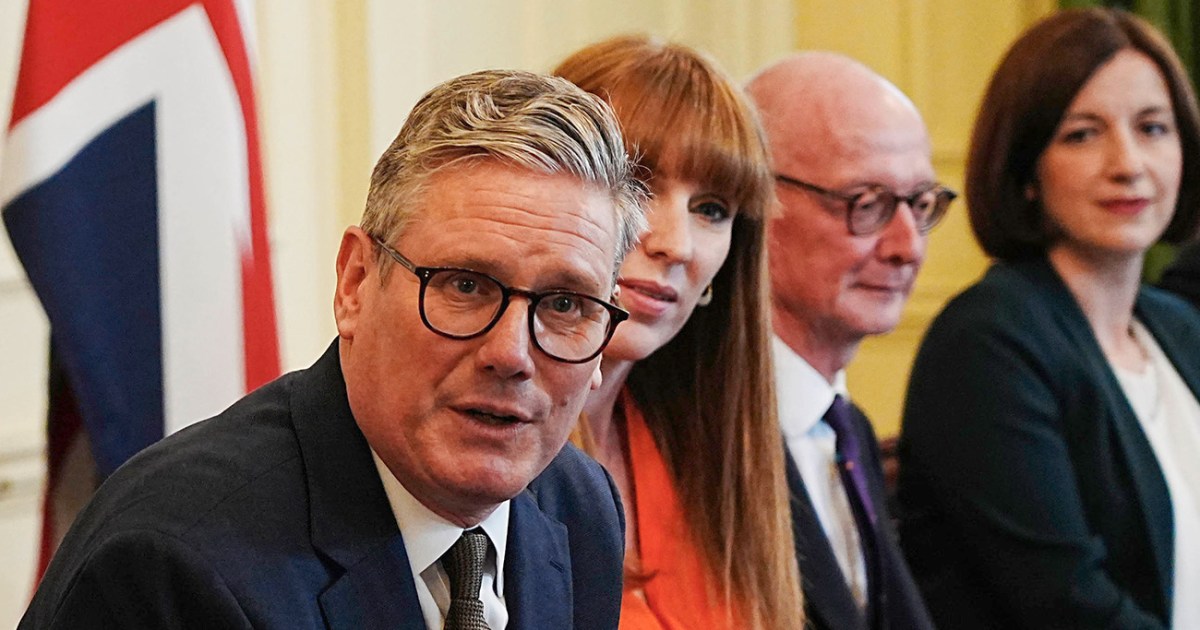British Prime Minister Starmer has an onerous task of fixing broken U.K.

- by Admin
- July 8, 2024

If the first few days are anything to go by, Starmer’s Labour is unafraid to roll out surprise policies never mentioned during the campaign.
Within hours, he had scrapped the old government’s controversial plan to deport asylum seekers to Rwanda. And he raised eyebrows among the right when he unexpectedly appointed James Timpson, a key-cutting magnate who employs ex-convicts, as his prisons minister. Timpson has previously said that only a third of inmates should be incarcerated.
The international picture is no less onerous for Britain, which finds itself an isolated, midsized power in a world increasingly contested by giants like the United States, China and the European Union.
A key international relationship will be the one with Washington, and Starmer has vowed to work with whoever wins the American presidential election in November.
He and President Joe Biden appear comfortable bedfellows, both casting themselves as havens of liberal, centrist sanity after the chaotic tentures of their predecessors.
But as a rules-obsessed, self-described progressive socialist, Starmer could hardly cut a greater contrast with presumptive Republican nominee Donald Trump.
Starmer’s foreign minister, David Lammy, described the former president in 2018 as a “woman-hating, neo-Nazi-sympathizing sociopath” who presents a “profound threat to the international order.”
Lammy has apparently undone that potential diplomatic tension by jetting out to the U.S. and meeting with Trump officials, Menon said.
Nonetheless, “Trump would pose real challenges for Keir Starmer — one obvious example is Ukraine,” Menon added.
Starmer is a staunch supporter of Kyiv, while Trump’s mixed messages have led some to speculate on whether he might end the American aid on which Ukraine relies.
Like Biden, Starmer has lost support among progressives who believe he was slow to back a cease-fire in Gaza. How much the left of his party continues to pressure him on this issue, or obeys party loyalty now in power, remains to be seen.
On China, Starmer is likely to continue with the necessary ambiguity that drives most European powers, who balk at Beijing’s human rights record but whose economies rely on Chinese trade.
Ultimately, “whether Labour improves Britain’s standing in the world will depend on whether it can fix the U.K.’s problems at home,” according to a briefing by Chatham House, a London-based think tank. “It is a mark of the significance of this general election that a result predicted for months still brings with it a sense of uncertainty about what will follow.”
Britain’s position is all the more precarious having left the European Union. And dealing with this economic and diplomatic bloc as an outsider might be getting more tricky.
The populist far-right made gains during continent-wide elections in June. And although Marine le Pen’s anti-immigration party failed to win a parliamentary majority in France this weekend, she — like Trump ally Nigel Farage in Britain — will see this as a springboard for the next election.
These political insurgents have capitalized on the sense that mainstream politicians have lost touch with people. Starmer is all too aware that’s a perception he needs to change.
“This will be a government about delivery and about service,” he said Saturday. “Self-interest is yesterday’s politics.”
The Latest News
-
December 22, 2024Donald Trump picks Apprentice producer to be the US special envoy to UK
-
December 22, 2024Daily horoscope: December 22, 2024 astrological predictions for your star sign
-
December 21, 2024UK flights and ferries cancelled owing to high winds as Christmas getaway begins
-
December 21, 2024Prince Andrew plans to move to UAE amid espionage allegations: Report
-
December 21, 2024Inside Britain’s saddest shopping centre: Town centre mall empty just DAYS before Christmas as depressed locals say ‘it’s a disgrace’





